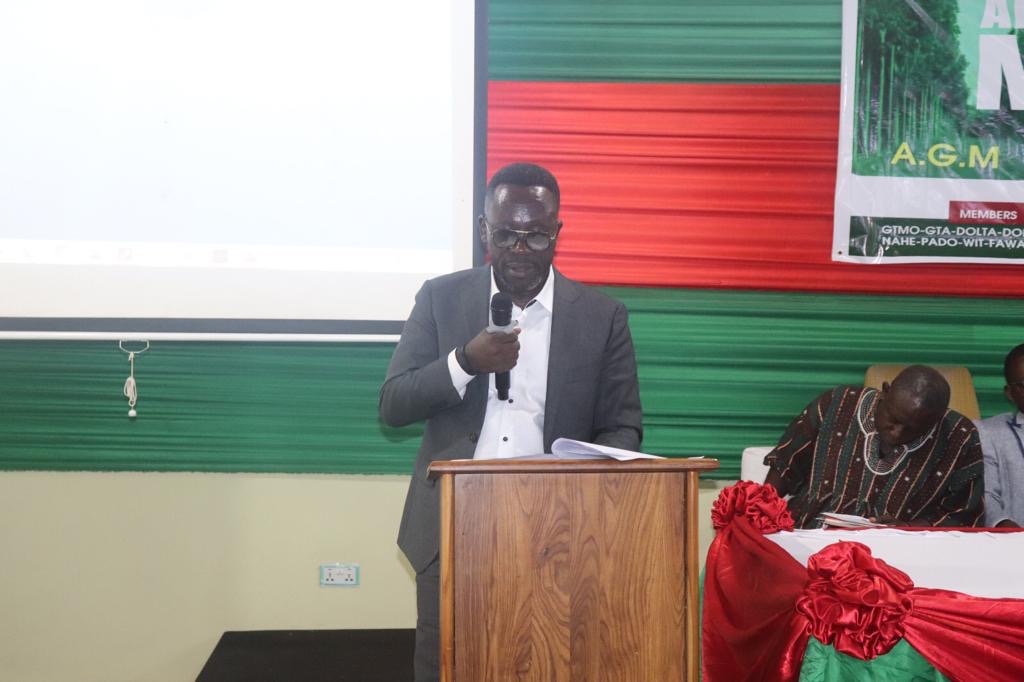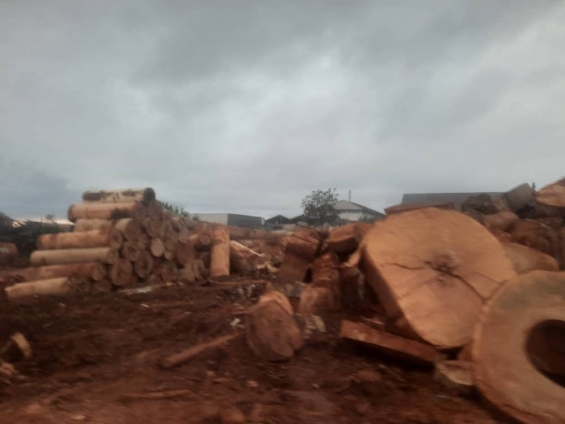Private business associations operating in Ghana’s forestry sector have formed a united front to address common challenges while pursuing a sustainable operational model.
The Forest Industries Association of Ghana (FIAG) is formed as a not-for-profit conglomerate of 11 trade and business associations operating in the private sector of forestry in Ghana.
President of the Association, Richard Nsenkyire, says priority areas include “ensuring sustainability by promoting the adoption of circular economy and green economy principles in our business practices. For instance, some processing companies are retooling to be able to use more of their residues. Others are also supplying their residues to others for further processing”.
The goal of FIAG is to enhance corporate performance, have a common voice on concerns and forge a strong entity to continue contributing to the socio-economic development of Ghana.
“The individual firms collectively employ over 300,000 in the business areas of plantation development, logging, milling, manufacturing, haulage and equipment services, sales and marketing; and capacity building,” said Richard.
Indirectly, the businesses lubricate many links of the forest products supply-chain by consuming products from other members to keep the conveyor belt moving.
“The sector is also a major consumer of electricity, fuel, plant and machine accessories, with other players in the economy depending on them for their businesses to survive,” observed Richard Nsenkyire.

However, the industry is faced with the challenge of diminishing raw material supply from forest reserves which have gone down from 1million m3 to 500,000 m3.
Other challenges include the dwindling log production in off-reserve areas to unsustainable levels due to inadequate incentives for farmers to retain timber trees on their farms as well as the degradation of the resource base due to destruction by illegal mining, illegal farmers and illegal mining.
Chief Executive Officer of the FIAG, Dr. Kwame Asamoah Adam, says opportunities in the sector will be explored through the Association’s green economic models.
“The transition to a green economy business model is necessary for companies to achieve sustainable development targets. This virtuous circle encourages resource and energy efficiency and promotes sustainable production, enabling the use of environmentally friendly technologies, processes, and products,” he said.
Latest Stories
-
Trump-Musk row fuels ‘biggest crisis ever’ at Nasa
1 minute -
Help protect oceans for sustainable future – Dr. Agyekumhene
2 minutes -
Portugal vs Spain Nations League final preview
3 minutes -
Sir Sam Jonah’s blueprint: 10 keys to transform young people into nation builders
9 minutes -
Sir Sam Jonah calls for urgent STEM prioritisation to develop Ghana
36 minutes -
Gyakie makes Forbes Africa’s 30 Under 30 list for 2025
55 minutes -
‘Write for World’ graduates 30 females in entrepreneurship and fashion design programme
3 hours -
Police escort vehicle somersaults in near-fatal crash near Binduri
3 hours -
Sir Sam Jonah commends Mahama as he backs youth leadership to transform Ghana
4 hours -
“I was a labourer in the Obuasi mines” – Sir Sam Jonah shares humble beginning
5 hours -
Embrace the ‘F word’; Failure is the path to success – Sir Sam Jonah
5 hours -
Build relationships that matter – Sir Sam Jonah advises Ghanaian youth
5 hours -
Africa doesn’t need more people with power, money or fame but character – Sir Sam Jonah
7 hours -
Celebrating Melvina Amoafo: A Legacy of excellence in Ghana’s capital market
8 hours -
Restoring Meritocracy: A path to effective governance in Ghana
8 hours

